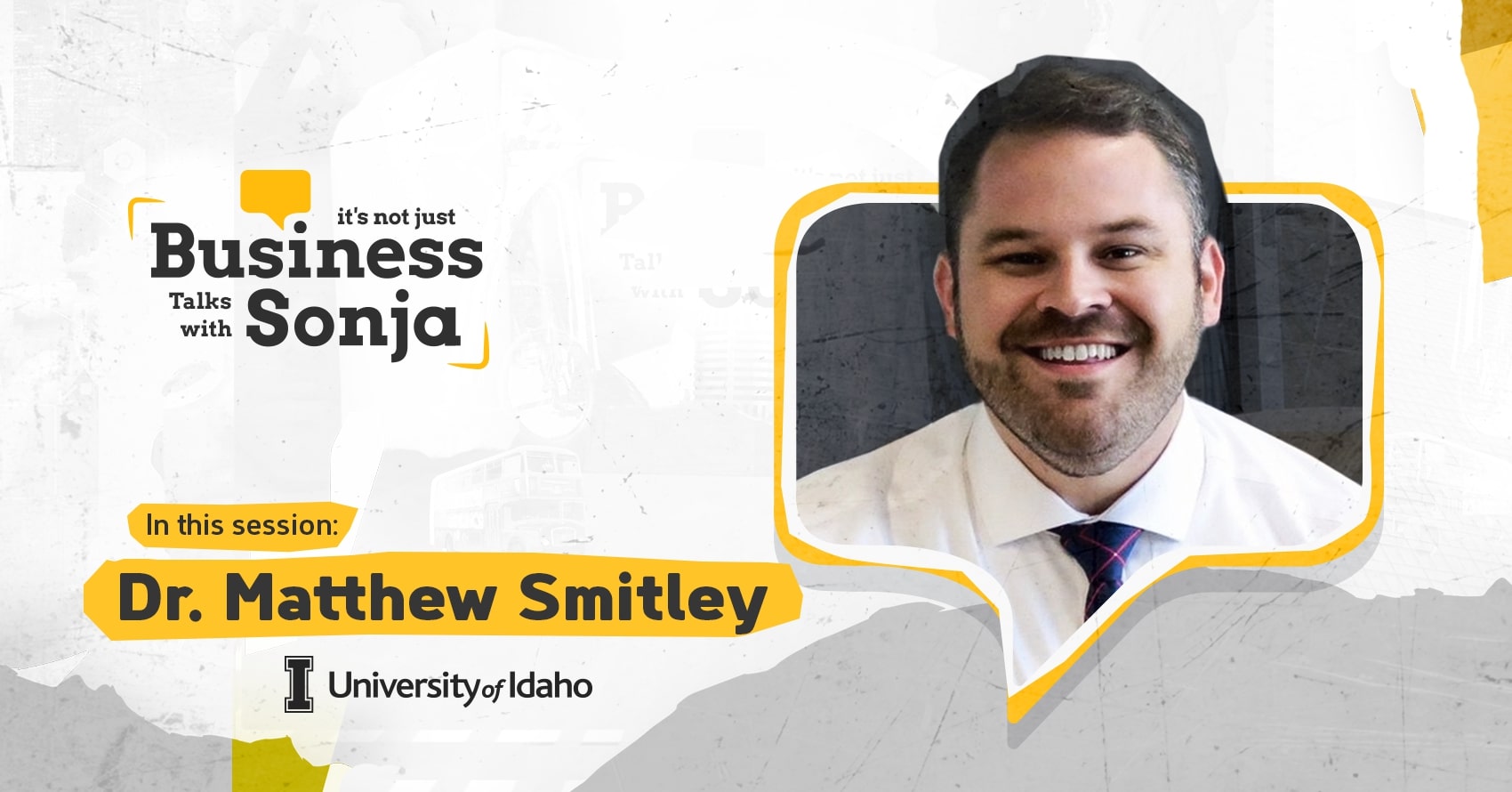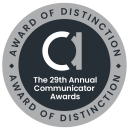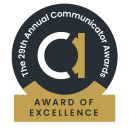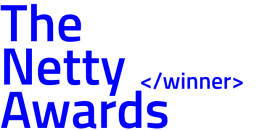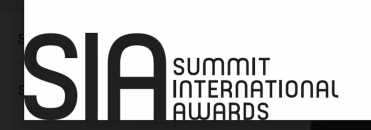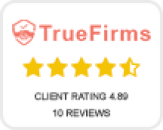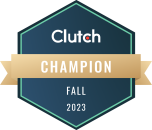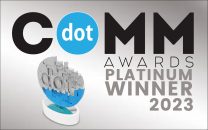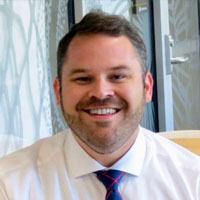
Dr. Matthew Smitley is the Clinical Assistant Professor and MSAT Program Director for the Athletic Training Program at the University of Idaho. The University of Idaho’s 24-month Athletic Training Program places students in real-life clinical situations to give them the needed experience to hit the ground running after graduation. Dr. Smitley first joined the faculty as a Graduate Teaching Assistant while pursuing a Doctor of Athletic Training in 2017. After receiving his degree in 2019, he joined the faculty full-time.
Previously, Dr. Matthew Smitley worked with Mission Health, named one of the nation’s Top 15 Health Systems, and a full-time high school outreach athletic trainer. While there, he organized, coordinated, and provided health care for over 300 student-athletes across 28 teams and 16 different sports.
Here’s a glimpse of what you’ll learn:
- Dr. Matthew Smitley describes the unique aspects of the Athletic Training Program at the University of Idaho
- What inspired Dr. Smitley to pursue sports medicine instead of all his other interests?
- Why the University of Idaho gives their students as much real-world experience as possible
- Dr. Smitley explains how personality tests have helped him better understand and serve students and faculty
- The leap of faith that changed everything for Dr. Smitley
- Dr. Smitley talks about the mentor that inspired him to reach higher and fulfill his potential
In this episode…
Have you started down your career path but feel like you’re going in the wrong direction? Do you feel like there’s more out there for you, and it’s time for a change?
Dr. Matthew Smitley worked at a great company in Northern California where he enjoyed his work and employers — but something was missing. His friend and mentor, Dr. Baker, had recommended pursuing a doctorate degree three years earlier, but he had dismissed the notion. Finally, something within Dr. Smitley snapped into place — he handed in a two-week notice at his office without any new job guarantee and plowed full-steam ahead into a doctoral program. From there, he found a passion for education and new clarity as a clinician and arrived in a position he loves: teaching at the University of Idaho.
In this episode of It’s Not Just Business Talks with Sonja, Sonja Anderson sits down with Dr. Matthew Smitley, Clinical Assistant Professor and MSAT Program Director of Athletic Training at the University of Idaho, to discuss the leap of faith that led to his current position. Dr. Smitley talks about why he chose to pursue athletic training, the mentor that inspired him to reach his full potential, and what is unique about the University of Idaho’s Athletic Training Program.
Resources mentioned in this episode:
- Dr. Matthew Smitley on LinkedIn
- University of Idaho Athletic Training Program
- Sonja Anderson on LinkedIn
- zo agency
Sponsor for this episode…
This episode is brought to you by zo agency, a tight-knit team of online and offline marketing pros.
At zo, we serve as the marketing department for small to mid-sized businesses.
We know that marketing and advertising can be demanding and time-consuming — that’s why we make the process so easy-breezy that you don’t have to sacrifice precious time to get the results you need.
To learn more, visit zo.agency or call (541) 633 4725.
Episode Transcript
Sonja Anderson 0:05
I’m here today with Dr. Matthew Smitley originally from Grand Forks, North Dakota. Dr. Smitley has traveled and lived in many areas of the United States. Growing up as an Air Force brat, Matt spent the majority of majority of his life in the beautiful Santa Barbara County, California, which can’t be bad. It was there that his interest and passion for sports medicine and athletic training started. After obtaining his master’s degree in 2014. Dr. Smitley, he moved cross country. Thank you. So Oh, the other way Yeah, to work with a top 15 health system as a full time outreach athletic trainer to a mid sized High School. While there he organized, coordinated and provided health care for over 300 student athletes across 28 teams and 16 different sports and I’m exhausted from just thinking about all that thing that you’ve been doing. So outside of athletic training, Dr. Smitley is an avid University of Tennessee football fan and singer gets more interesting. In his spare time, he enjoys traveling, exploring his new home in the Pacific Northwest and spending quality time with friends and loved ones. And of course, you are now at the University of Idaho athletic training program. I like I said I was exhausted just thinking about all of that. But obviously, you and I met through University of Idaho. Yes. And through your incredibly cool athletic training program, which is unique. And one of the teacups I’d like to do is just tell me about what is that program? And why is it unique? Because it truly is different?
Dr. Matthew Smitley 1:52
Yeah, there’s a lot of unique whities about our program. But before I start, thank you for having me with you, I get to meet your story, but also connect with everyone and you know, University of Idaho athletic training program has been an educational program through the university and in the in our professional spheres for quite some time. Yeah, I’m in it. In its current format started I want to say around 2013. Got it. And as a profession, athletic training is pretty unique in the fact that it’s at the intersection of a lot of different healthcare fields. We have the emergency and immediate medical care, which is similar to what you’d see with the EMT, we have a lot of in depth evaluation and diagnosis like you’d see in a physician’s practice. And we also do a lot of therapeutic interventions like you’d see in physical therapy, right? Well, athletic training is right at the center of all three of those. And it’s probably even some more professions mixed in there, which creates a unique educational program, there’s a lot of different things that we have to teach and instruct in and assess students with. Mm hmm. It also attracts a lot of unique individuals that want to provide care to athletic teams. And as our profession is also growing, it’s expanding into things like industrial medicine and performing arts in tactical health care in in a lot of different fields in professions that were providing health care services to. So as a program, from the start, we had an aspect in niche in the world of the health care world. And then when we add in things that we’re passionate about as a faculty and staff, how we were organized and created a lot of forward thinkers that initiated our program. And we’re at a point now we’re building upon the foundation that they inset for us in expanding our program, one into filling gaps in the profession and things that we think are super important, but also providing qualified and competent healthcare into all of those settings where there’s a lot of historically underserved populations. Right,
Sonja Anderson 4:02
right. Yeah. And there’s a unique structure to your funding and how you operate as well. Right. So I’d love to hear I mean, there’s so many parts because I already know some of these but tell me one thing, what that looks like.
Dr. Matthew Smitley 4:15
Yeah, we have a pretty unique structure in that we’re under. We are approved by the State Board of Education for the University of Idaho and by the state of Idaho. And we are an official program underneath their umbrella. But the funding structure for our program is almost the completely inverse from what you anticipate. So students when they pay their tuition to the university, a large portion that goes to their student experience and overhead things like that small portion of their tuition goes back to the program. Well your self support program and that students pay tuition to the school but the you know, that little top percentage of it for my church goers maybe that would be at Have you thought it?
Sonja Anderson 5:01
Yeah, I know I want to hear about the church goers do here.
Dr. Matthew Smitley 5:05
There’s a top percentage that goes to the university, but then the rest of it goes directly back to our program. We are fully self support in that, financially, our success is not only standing on how our students perform academically or on national certifications, exams and things like that. But the success of our program is also built built on how we can bring in students that believe in align with our mission aligned with our vision. And we grow the program not to build a pot of money or anything like that, but we can to expand and deepen our program and what what we can offer our students and improve their experience.
Sonja Anderson 5:48
And you are, I feel like and I may may have already kind of covered this in what you just said, because I sometimes I get a little bit overwhelmed with how brilliant you are. And I am I’m more of a as you know, from being in marketing, we’ve run into this before. I’m a circular thinker, and you’re very direct. So but the DA T and the M msat. Are I getting that? Right? So your your programs, though? What Weren’t you the original, original gangster as it comes to some of these programs in the stance?
Dr. Matthew Smitley 6:18
Yeah, absolutely. So I’m the the MS at the Master of Science and athletic training program director. And then under our umbrella I also in the self support umbrella in these programs is the doctor of athletic training program. Yeah. And when we when I talked about the forward thinkers that we built the foundation for us we had Dr. Elena Stephanie, yep. And then also Dr. Jeff sigue. Miller, who had recognized that there was a gap in the profession that we were preparing individuals to go into clinical practice, but there wasn’t a lot of follow up education, we have an education standards that we have to meet as a profession. But there wasn’t a lot of depth or improving depth in advanced patient care. And so seeing this, they said, Well, why not create a terminal degree for the profession? And that’s where the doctor of athletic training was born out of, right? Well, yeah, a lot of 32nd elevator pitches to big people in the profession. And then it carried on to an opportunity really was just perfect crossing of roads and paths and everything else. right place, right time and opportunity was presented to our university. President came in, and he said he was looking for entrepreneur, entrepreneur, I can’t even say the word entrepreneurial, as my word. entrepreneurial mindsets and ideas. One of those was the self Support Program at creating a terminal degree for our profession in again, all the stars aligned plans align. And that’s where the program started. was from that, you know, brand brainchild, recognizing a need. Yep. And then also creating an opportunity to fill that as well.
Sonja Anderson 8:00
Well, I mean, and I, I’m thrilled I already Of course know a lot about your organization, but that’s that it’s important that we can kind of get the backstory on there. And I just I one of the things that I wanted to just pivot to was you yourself, man, because you’re a really interesting fellow. And I mean, I actually just kind of going through your bio, I was like, wait, singer, haven’t heard this one before? What kind of what what’s your voice? What’s your where do you sing? Are you you know, are you a rock band or church? Sure.
Dr. Matthew Smitley 8:32
Yes. Yeah. So I grew up singing in church. Sure. It’s kind of interesting. I didn’t realize this till later in life. I come from music on both sides of my family. So my grandfather, my dad’s father, formally trained vocalist has sung literally all over the world. My pap or my mom’s father, my maternal grandfather. He was a very informally trained singer, and was a bluegrass vocalist, small group of friends that he had. Yeah, watauga River boys. Wow, missing locally, nothing big. Right. But came from music on both ends of the family. So anyways, fast forward into life. And I had an opportunity to audition for a singing scholarship at California Baptist University. And they offered a scholarship to join one of their groups, which is the male chorale and I got to tour the country. Wow, half the country for three years. So Okay,
Sonja Anderson 9:34
wait, so you’re actually pretty good if you’re getting a scholarship. So that says something?
Dr. Matthew Smitley 9:39
You know, it’s kind of interesting, because there’s a lot. I mean, I was, it was a great opportunity. I don’t want I’m not one to fluff my own feathers or anything. No, it was a great, great experience. And I was very fortunate to have had that opportunity to have the scholarship and to be able to see areas of the country. I never would have seen before and I mean, we sing for groups of 20,000 plus all the way down to a small tiny church in western Montana. Wow. Okay. Yeah, it was a lot of fun get to tour with 90 other guys. And we had a brass section and a whole prayer. It was oh my
Sonja Anderson 10:16
god. Yes. You know, I bet now that I’ve heard this, I’m going to go find you somewhere on YouTube. And I’m going to like, I would tag this, I’m going to tag this. But do you do you sing now ever? I mean, does it come out and karaoke or just to your loved ones or
Dr. Matthew Smitley 10:31
my lovely wife, my better half gets to hear me sing over the radio. And then I have not done it more recently, but I have you know, when I’m plugged in with church and all that I try to help lead I have led worship for a couple different churches where I’ve lived in a wide and, and in that’s, you know, something I enjoy. It’s a it’s a great stress reliever. It’s a great app to have fun with. And so immunity as well. And so great purpose in that I love that. Actually, I
Sonja Anderson 11:01
was I was reading something else here that I’m really wanting to ask. So you were in ministry. I mean, your path has been sort of not, not unlike others, not a straight arrow, right? You kind of bounce here and you go there and you try this. You try this. And and I’m sure some of them were were rich, whether or not they became your final path. But do you want? Would you share a little bit about that journey? I mean, obviously, you didn’t just wake up one day as the University of Idaho. You know, Assistant, Professor, how did how did that materialize? What was that, like?
Dr. Matthew Smitley 11:31
The whole path has been pretty winding. I mean, really young, growing up a military kid, that was something that interests me. And then I took a video productions class in high school. And this is a lot of fun. I love doing behind the camera. I love editing things that was actually my senior project in high school was a video project that I had edited over the course of four months. And it was a lot of fun.
Sonja Anderson 11:52
Yeah, it is fun. I get it.
Dr. Matthew Smitley 11:55
Yeah. And that was my sophomore, junior year. And then my senior year, I happen just to take a sports medicine class it was then we call it rip now. Other groups nationwide call it CTE. So career and technical education. Oh, interesting. Okay, so it was a sports med class. And I got to shadow a physical therapist and some emergency medical technicians and athletic trainers and realize, Oh, this is actually really fun. And I was really intrigued by traveling the world or traveling the country and traveling with athletic teams, and then getting free year that was once a year bonus. that interested me at the time. But then I stuck with that career choice and pursued that all the way through through my undergrad and realized that I really enjoyed being able to help people. So that’s kind of where when I was at Cal Baptist, my dad was a minister. And so that was something I’ve always been able to see and see him devote his time to helping other people. It’s not just sitting, sitting behind a pulpit on Sundays, there was a I mean, everything he did was done out side of the pulpit, through the course that we can helping others, right. And I realized that was something that was pretty important to me, hospitality being helpful things like that. And so that’s what led me and help actually helped me find an identity within the profession is that I wanted to provide care to people, but also provide care that’s better than what’s out there. I mean, we’ve all had experience of going into the doctor’s office, they see for a couple minutes, they’re interrupting you. And you’re maybe getting a couple words in and you leave with prescription. That’s it, and oh my gosh, right. I know, I know, ideal now. And that’s what kind of created a fire in me is I want to provide good patient care. Yep. And I want to provide a helpful resource to people and connect people to the right resources, and not just give them this cookie cutter approach,
Sonja Anderson 13:49
which is what your program does. I mean, you are putting students in clinical emotions pretty quickly. I mean, as we’ve talked, I mean, I’ve, as I’ve learned, many of them come out with their degree and a job as they hit the ground running, so to speak, and can actually provide incredible patient care, really on day one, rather than than they have to take that to the, to the setting and learn on the job after they’ve got their degree not a good fit.
Dr. Matthew Smitley 14:17
Absolutely, absolutely. And that’s something that’s been you know, prone to our profession has been prone to and there’s a lot of bigger profession wide challenges that the that we’re navigating collectively. But that’s something that we’ve navigated as people get into the real world and think, Oh, this isn’t the setting or this isn’t the type of job that I want. We’re allowing our students to get the entire time that they’re in our program, they’re able to navigate Okay, maybe this setting or maybe this type of school or this size of school is not right for me out there. And we’ve had students that have skipped the the normal progression on right into industrial medicine right into Performing Arts, medicine, right. professions that they feel they have a calling to, that they mesh well with, that they that They feel like there’s a purposeful, you know, day to day life rather than just going through the motions of the same stuff every single day.
Sonja Anderson 15:07
Absolutely, no kidding. And I mean, as a mother of six college aged children, I can appreciate truly appreciate that approach versus and, of course, our kids have bounced around in different schools because they get somewhere and it just isn’t a fit right for that same reason. And I noticed because you’re talking a lot about purpose and, and how that has led you to want to serve in that way be meaningful about your serve service, I also noticed that you have have learned quite a bit about the enneagram, which is one of my favorite topics. I know all about it. My husband is very into it, too. What Tell me a little bit about the enneagram for you.
Dr. Matthew Smitley 15:48
Yeah, so for me, I’ve always been one that loves taking the personality, you know, quizzes and things like that. I’ve always felt like when you do Myers Briggs is a great one. I love that one too. It gets me almost there, but it doesn’t really fully there’s always something that doesn’t seem off or seem right or fully aligning with. Yeah. And then I did an enneagram quiz. I don’t know. You know, I did all my type. I’m a I’m a two wing one. I could have told you that. I could have told you that. funny because I see you know that my friends and I that are pretty familiar with it. Oh, you’re such a type two or Oh, yeah, that is you. And just in my main my, you know, my main type my type two. It really is interesting to me is like it nailed like 80% of the almost
Sonja Anderson 16:40
helpers, servant kind, caring. All of those. Yeah, so true of you.
Dr. Matthew Smitley 16:45
Yeah. And then when I start learning about how wings work, and that, that captured like the other, like 15%. And so I’ve still got this fiber and that’s the other like the other end of that. And then they have the you know, these lines of disintegration or integration, like what you’re doing how you when you’re doing really well, how you drift to a different type, and you’re doing not so well, you’re drifting to another was so accurate.
Sonja Anderson 17:10
And it’s so ancient, right? It’s not that some guy born in his basement wrote up a new pop quiz. It literally is rooted in in I think it’s gnostic or Christian, some sort of found, you will know better than I do have some great resource. Absolutely. It’s, it’s been it’s been around a long time. And I think it’s one of those that looks like kind of trendy, fatty that it’s coming around and like, Oh, yeah,
Dr. Matthew Smitley 17:33
like, there’s more people that talk about it. It’s been around for quite some time. Yeah. And for me, you know, being the type two, I always want to help people connect, I always want to, you know, how can I best contribute to their life experience and speak to them? How can I and it’s all from the mindset of how can I like help them because I just want to put them in the right place, connect them well. And so I started kind of toying with it a little bit when I first was in my doctoral education just on a personal end, realizing Oh, my I have family members that are very similar to me, and they are identical to me in my in their enneagram types, and then family members that are different than me. And I’m like, Oh, yeah, that totally explains it. And I’ve been able to utilize that and you know, as a faculty and staff we met a couple years ago, and we each did the test and went through him like, Okay, so this is how so and so ticks Yeah, this what their core motivations are, these are their deep down, does he like undesirable fears are Yeah, allows me to navigate how I can best connect with them. Right? See, how can I, you know, support them? Or what are tasks that are I would even say? What are environmental influences that can help protect them from? Or what environments can I push them into because they’re gonna thrive in that type of environment? And I start to see that I haven’t, you know, necessarily done this all with my students, but it’s helped me be more aware of what are their triggers? What are their desires? What are things that they fear? What are things that they like, how do they grow? And knowing that is how I can best provide individualized feedback for each student,
Sonja Anderson 19:10
which you would because you’re a two and you want to make it work for everybody else? Because someone like me or my you know, different so I’m not going to necessarily spoiler spoiler alert with my my enneagram number because I think it’s like the dud of the nine. I know that my husband is a nine and I know what his mo is right? When five of our daughters are screaming at each other. He is not trying to break them up. He is literally trying to find a quiet corner to hide until the peace is restored. Yeah, you know, so I know his I know him and that helps in just in personal engagements. But it does with absolutely with work clients. Yeah, and students. Absolutely. And thanks for sharing what you’re up to now I know all about Yeah. You know, 80% of my market. Yeah, um, but so I mean, on this long journey, and I just want to think about I know it wasn’t always perfect or positive, although you sound like you’ve been very held up and lifted and supported throughout throughout your, you know, road. Were there ever times where you just thought I have no idea what I’m doing? Or this isn’t working or I can’t pay my rent on this or you know what in the world?
Dr. Matthew Smitley 20:24
Yeah, I think the biggest moment that comes to mind was, I worked when I was working in North Carolina, it was a great environment, I had awesome administrators above me directly above me. But there’s just a lot of contextual challenges that I struggled with. And I realized a lot of that was centered on me, almost being in the right field, but not fully being there. And so one of my mentors, Dr. St. Baker, he had been planting the seed for the DHT. in pursuing my doctor, he said, I think this will be a good path. And there’s some opportunities that you’d have here. And I waited on it for three years, I sat on, wow, okay, yeah. And finally, I got to the point where I just had a lot of, you know, abnormal stressors and anxieties that were building up in that setting that I just said, okay, something’s got to change here. And I’m normally one that likes to make very calculated decisions, consider all the influences. And I’ve done that over some amount of time about the program. But then I said, Alright, I just need to pull the trigger and not wait on this one. And so I did, I basically handed in my regs, my, you know, two week or whatever it was my resignation, yeah, had no guarantee of a job, no guarantee of whatever I just knew that I was gonna pursue this degree thing is kind of settled down, and things fell into the right place. And that’s what put me in this position. And so that allowed me to kind of navigate, okay, these are what make this is what makes me tick, tick, as a clinician, I will up further identify that, well, I actually really enjoy teaching. And I come from a line of teachers as well, my mom’s side. So that’s it’s things just kind of fell into place. And that’s when I realized, like, Oh, this is what
Sonja Anderson 22:17
were you born? So was that like a leap of faith? Almost, because you kind of just had no career guarantee. When you when you when you let go when you went into the next space? I mean, it sounds like, that’s just a
Dr. Matthew Smitley 22:31
very short description of it. Yeah, you know, here I am. I mean, I remember how old I was. But in my late 20s, and I said, something’s got to change. And I don’t didn’t know exactly what it was at the time. But I knew that it wasn’t, were on the path that I was headed in, and it wasn’t anything against the employer or anything, they were awesome, I enjoy those people there. But it was just in that setting. It just wasn’t hitting, you know, the things I wanted to be doing. And maybe it was that I didn’t have all the resources that I could have to help people. And so I eventually learned that, you know, being an educator in this realm, I’m able to help more people like, through my students, and the students preparing to go into the real world, rather than me operating as one individual at one clinical site and one athletic setting. So true, that’s actually
Sonja Anderson 23:23
great wisdom. Because if you have a lot to give, and you can give it to more than just one individual, not that one individual doesn’t matter, every one of them does. But you know, by extension, helping a number of other I often feel that way about my own organization, because when we help one client, let’s just say grow or even hire 10 new employees, because they are a little short staffed and, and then those people you know, were held, then they’re reinvesting in their communities. They’re, they’re sponsoring, you know, some little high school sports team or their whatever. It’s we just by extension, what we do with clients with a with multiple clients versus me just being, let’s say, the marketing director in one firm. I like that, too. So a little bit about my thoughts about that. But, um, I really appreciate your time. And I heard you say, Dr. Baker, is Dr. Baker still in that same space? Because I, you know, that sounds like a mentor who is fairly influential in your life.
Dr. Matthew Smitley 24:15
Yeah, he’s very influential for me. Because he, he’s the one that kind of lit the fire under me of like, don’t accept mediocrity.
Unknown Speaker 24:23
Yeah, that was
Dr. Matthew Smitley 24:23
something I didn’t quite understand. It didn’t quite align with until I was out of. I mean, he was a teacher of mine at one point, but once I was out from under his direct tutelage as a as a student, once I had some time to experience the real world and be like, I know that there are better things out here that I could be doing for my patients. I just don’t know what they are. Yeah. And he was the one that planted those seeds of saying we could be doing a whole lot better. From a healthcare perspective, from a patient care perspective. He’s the one that fostered that environment for me, he blades planted the seeds, fertilize the ground, all that and this led sit for a long time. Go Dr. Baker.
Sonja Anderson 25:05
Shout out to Dr. Baker and he did what you’re doing by extension, he planted a seed in in you that then planted seeds in others. And that’s just how it really does work.
Dr. Matthew Smitley 25:38
Yeah, absolutely. And that’s something that, you know, I have to give him Dr. Baker credit for it. Like he asked, he was teaching me, he was planting seeds for saying there’s got to be a better way, there’s got to be a better way there’s there’s things that we can be doing better individually as a profession. And that tune my eyes to looking for those opportunities. And I didn’t know exactly what I was looking for. But I knew I open absolutely, it was opening and laying the groundwork for it. So for me to act on pursuing the deity and pursuing all these extra credentials, these, you know, the alphabet soup behind my name. That’s one of the things that he planted the seeds. And it took three years for it to actually take root in for me to act on, you know, what he was trying to, you know, ingrained in us at an early time in our in our career. And whereas, you know, so he’s actually my predecessor in my position. So I took over for him, which is pretty, pretty cool. There’s a great opportunity that you know, just right place, right time and something that we, you know, I don’t want to discredit any of my efforts, but it’s one of those things that just kind of presented itself at the right place right time. But he is now the director of medical research for the University of Washington’s medical school. It’s their extension campus here at yo VI. And so how can you advise in the state of Idaho? He’s that’s where his ground is. They have a five state conglomerate med school. Wow. So for Idaho, that’s his position. Oh,
Sonja Anderson 27:09
fantastic. Well, so you actually, are you physically in the same town that are nearby?
Dr. Matthew Smitley 27:13
Yeah, same time you do have coffee together and talk about it? Yeah. Well, that’s I mean, because he’s my predecessor in this position, there’s always things that I’m, oh, can I ask you about this? Or can we talk about? Yeah, so I’ll say, Hey, I’ll buy lunch, if you don’t mind, just spilling your spilling your your your guts here, like, you know,
Unknown Speaker 27:31
let me into your mind. Amazing. I mean, to
Sonja Anderson 27:33
have your mentor still very much in your life is really truly. You know, and not only in your life, but in your neighborhood, essentially. Yeah. Well, it’s been amazing catching up with you. And I, there’s so much more to talk about. But I think the cool thing is, is that I know I’m gonna get to talk to Dr. Allen the symphony as well. I’m soon and kind of get his story behind, not only his program, which is another organization that he actually has developed, but yours because you guys work together. So absolutely. He’s a great individual. And he’s kind of spurred a lot of my own personal growth in the last five years. He’s been at the forefront of that for me, I can add about him. Yeah. Yeah. So let me wrap it up here with my little I have to do this outro thing that we do here, it’s we’ve been talking to Matthew Smedley, clinical assistant professor msat, program director of the athletic training at University of Idaho. Did I get that right? Yeah, you did? I did. And I didn’t do your alphabet soup. But I hope that’s okay. Because I don’t. But you have Alfa, let’s just say he has alphabet soup behind his name. Yes. And Matt, where can people learn more about you and your programs?
Dr. Matthew Smitley 28:43
So our program, you can find us at our website website is ATP dot u i.edu. dot you idaho.edu perfect. That’s exactly right. And that’s where you can contact us. You can reach out ask questions about our program. You can also contact our faculty members through that. And and yeah, that’s the best way to learn about us learn our philosophy, but also get in touch with us.
Sonja Anderson 29:10
Awesome. All right, man. Well, thank you so much and have a rest of your day in bliss. Do the same. It’s a lovely afternoon. So we’ll talk soon. Okay.
Dr. Matthew Smitley 29:21
Awesome. Thank you so much. We do all right, so we’ll chat again soon. Bye, buddy.

